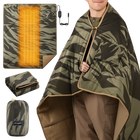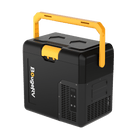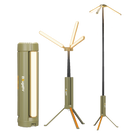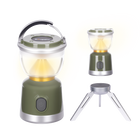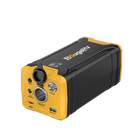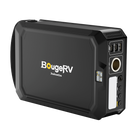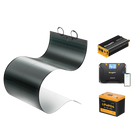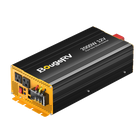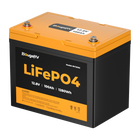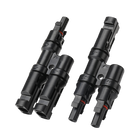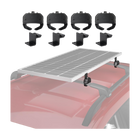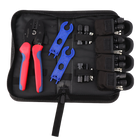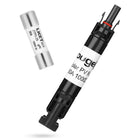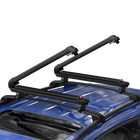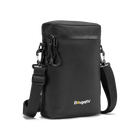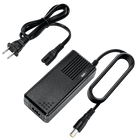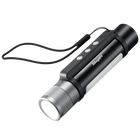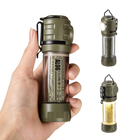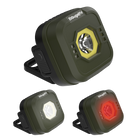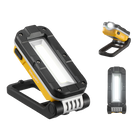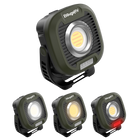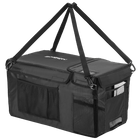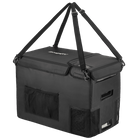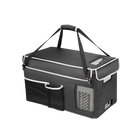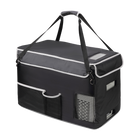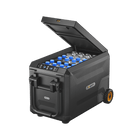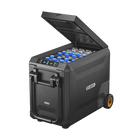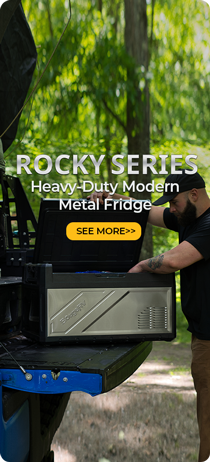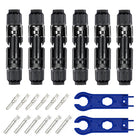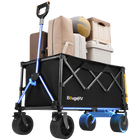Primitive Camping: Meaning, Benefits, Things You Need, And More


Primitive camping, also comprehended as backcountry camping, is all about immersing yourself in the untamed beauty of nature. No fancy amenities, just you and the great outdoors. So, if you're seeking a getaway from the hustle and bustle of modern life, this is the perfect way to unplug and unwind.
Now, let's dig deeper and discover what it takes to embark on this extraordinary journey. When you read on, you'll find valuable insights into essential preparations for your primitive camping trip. We'll cover everything from choosing the right gear, planning your route, and learning essential survival skills.
What Is Primitive Camping?
In a nutshell, primitive camping is the art of embracing the wild in its most authentic form. Unlike traditional camping grounds with their neatly laid out plots and facilities, primitive camping takes you off the beaten path, far from the trappings of modern life. It's about shedding the comfort of everyday conveniences and stepping into the heart of nature's embrace.
The essence of primitive camping lies in simplicity and self-reliance. It's about discovering the beauty of the natural world while fostering a deep connection with your inner self.
What's The Difference Between Primitive And Dispersed Camping?
Regarding camping in the great outdoors, two terms frequently pop up: primitive camping and dispersed camping. While they share similarities, they also have distinct differences that can significantly impact your wilderness experience. In the table below, let's examine these two camping styles.
|
Aspect |
Primitive Camping |
Dispersed Camping |
|---|---|---|
|
Location |
Typically, in remote and wild areas, away from developed campgrounds and amenities. |
Usually occurs on public lands, such as national forests or Bureau of Land Management areas, outside of designated campsites. |
|
Amenities |
Minimal or no amenities provided. Campers must rely on their resources and skills. |
No amenities provided; campers must be self-sufficient and bring all necessary gear and supplies. |
|
Accessibility |
Often requires hiking or backpacking to reach the campsite. |
More accessible, often reachable by car or short hikes from designated parking areas. |
|
Privacy |
High level of privacy, as primitive sites are usually far apart from each other. |
Moderate to high privacy, as dispersed sites are spread out and not crowded like traditional campgrounds. |
|
Regulations |
Rules vary depending on the location. Some areas may require permits or have specific restrictions. |
Generally subject to specific regulations set by the managing agency. Campers must adhere to Leave No Trace principles. |
|
Wilderness Experience |
Immersive and true connection with nature, offering a profound sense of solitude. |
Provides a wild and natural experience, but may encounter occasional passing hikers or campers. |
|
Preparation |
Requires more preparation in terms of survival skills, proper gear, and knowledge of the area. |
Still requires adequate preparation, but fewer survival skills are needed due to proximity to civilization. |
|
Suitable For |
Adventurers seeking a challenging and authentic experience, with a deeper appreciation for nature's beauty. |
Campers who want a rustic experience without the crowds of traditional campgrounds. |
|
Difficulty Level |
Moderate to difficult, depending on the remoteness of the location and the camper's skills. |
Moderate, as it may involve some navigation and off-road driving, but generally accessible to most campers. |
Both primitive and dispersed camping offer incredible opportunities to immerse yourself in nature and escape the daily grind. The choice between the two depends on your outdoor expertise level, the adventure you seek, and your desire for solitude.
Pros And Cons Of Primitive Camping

Let's take a brief look at the advantages primitive camping has to offer and some of the disadvantages.
Primitive Camping Pros
- No Need For Reservations: One of the most liberating aspects of primitive camping is the freedom to explore without the hassle of booking campsites in advance. Simply find a suitable spot, set up camp, and let the adventure unfold.
- Calm And Quiet: Primitive camping offers unparalleled peace and tranquility. The symphony of nature becomes your soundtrack, allowing you to unfold and reconnect with your inner self.
- Affordable: For budget-conscious adventurers, primitive camping is a dream come true. With no campground fees or extravagant gear required, it's a cost-effective way to immerse yourself in the great outdoors. All you need is basic camping equipment, a sense of adventure, and a desire to embrace simplicity.
- Embrace Solitude: If you crave solitude and introspection, primitive camping delivers. Far from the crowds and distractions, you'll have the opportunity to reflect, meditate, and better understand yourself and your place in the universe.
Primitive Camping Cons
- Requires Self-Reliance: Primitive camping demands a certain level of self-reliance and outdoor skills. From building a fire to purifying water and navigating the wilderness, you need to be prepared to handle challenges independently. However, learning these skills can be rewarding and provide a sense of empowerment.
- Less Overall Comfort: Unlike glamping or camping in developed sites, primitive camping lacks modern amenities and creature comforts. You'll trade your plush mattress for a sleeping bag on the ground and your cozy shower for a refreshing dip in a nearby river. But remember, it's all part of the adventure.
- Weather And Wildlife Risks: Mother Nature can be unpredictable, and primitive camping exposes you to the elements. Be equipped for sudden weather changes and potential encounters with wildlife. Understanding how to respond to these situations is crucial for a safe and enjoyable experience.
- Limited Accessibility: Primitive camping often takes you to remote locations, which might require long hikes or backpacking. If you have physical limitations or are camping with children, consider the accessibility of the area before planning your trip.
The Preparations For Primitive Camping
To ensure a successful and safe trip, thorough preparations are essential. Here are the key steps you need to take before venturing into the wilderness:
1. Inform Family
Before starting your primitive camping journey, inform your Family or close friends about your plans. Share your itinerary, including the dates and location of your trip. This not only provides peace of mind to your loved ones but also ensures that someone knows where to reach you in case of emergencies.
2. Pack Provisions
Create a comprehensive checklist that includes essential gear, clothing, and food supplies. Remember, you'll need to be self-reliant, so pack lightweight and durable equipment. Some must-haves include a reliable tent, sleeping bag, cooking stove, water filter, and a first-aid kit. Remember to bring enough food and snacks to sustain you throughout your trip.
3. Know Local Regulations
Familiarize yourself with the local regulations and guidelines of the area where you plan to camp. Different regions may have specific rules concerning camping, campfire use, and waste disposal. Respect these regulations to minimize your impact on the environment and maintain the beauty of the wilderness for future generations.
4. Backcountry Permits Or Primitive Campsite Reservations
Depending on the location, you may need to obtain backcountry permits or reserve primitive campsites in advance. Research the requirements and procedures for acquiring these permits or reservations.
5. Fire Safety
Campfires are an integral part of the primitive camping experience, providing warmth and a sense of camaraderie. However, fire safety is paramount in the wilderness.
Check for fire restrictions in the area, and if fires are permitted, choose established fire rings or create a fire pit at least 200 feet away from water sources and vegetation. Always have a shovel and sufficient water on hand to extinguish the fire completely before leaving the site.
What You Need?
Whether you're a seasoned outdoor enthusiast or a beginner venturing into the wild, here's a comprehensive list of essential items to ensure a safe, comfortable, and memorable experience:
- Tent: Your home away from home, a reliable tent provides shelter from the elements and a cozy place to rest after a day of exploration. Choose a tent that suits your group size and is suitable for the terrain you'll be camping on.
- Sleeping Bag: Keep warm during chilly nights with a high-quality sleeping bag that matches the expected temperature range of your camping destination.
- Camping Stove: Cook delicious meals and enjoy hot beverages with a portable camping stove. Look for lightweight and efficient models that fit your cooking needs.
- Fire Starters: Building a campfire is integral to the camping experience. Bring fire starters such as waterproof matches, lighters, or fire starter cubes to make lighting a fire quick and easy.
- Food Supplies (Pack Campfire-Friendly Food): Plan and pack campfire-friendly meals that are easy to cook and require minimal cleanup. Don't forget to bring various snacks to keep your energy up during hikes and activities.
- BougeRV Portable Power Station: Stay powered up in the wilderness with a BougeRV Portable Power Station. Charge your devices, power your lights, and stay connected even in remote locations.
- BougeRV Flexible Solar Panel: Harness the sun's power with BougeRV's cutting-edge Flexible Solar Panel for primitive camping. Bring both thin solar panels and compact power stations to keep your campsite illuminated and your devices charged while being environmentally conscious.
- First Aid Kits: Safety should always be a top priority. Pack a well-stocked first aid kit with bandages, antiseptic wipes, pain relievers, and other essentials to handle minor injuries and illnesses.
- Knives & Multi-Tools: Versatile tools like knives and multi-tools are handy for various tasks, from preparing food to fixing gear. Choose reliable and high-quality options for optimal performance.
- Headlamps: Keep your hands free and your path illuminated during nighttime adventures with a reliable headlamp. Perfect for hiking or navigating around the campsite after dark.
- Hiking Rain Jacket: Be prepared for sudden weather changes with a waterproof and breathable rain jacket. Staying dry is essential to maintain comfort and prevent hypothermia.
- Camp Tarp:Provide extra shelter and protect your gear from rain and dew with a lightweight and waterproof camp tarp.
- Survival Gear: Depending on your destination and activities, consider carrying essential survival gear such as a compass, map, emergency whistle, and signal mirror.
- Trash Bag: Always practice Leave No Trace principles and leave the campsite cleaner than you found it. Bring a sturdy trash bag to carry out all your waste and dispose of it responsibly.
How To Find Primitive Campsites?

There's something genuinely magical about disconnecting from the world and immersing yourself in the untamed beauty of nature. Let me share some tips on how to find these hidden gems for your next unforgettable camping adventure.
-
National Forests
National forests are a treasure trove of primitive camping opportunities. To find primitive campsites in national forests, start by researching the specific forest you want to explore. Most national forest websites provide detailed information on primitive camping rules, regulations, and available areas.
-
BLM Land
BLM (The Bureau of Land Management) manages vast tracts of public land which is open for primitive camping. Finding primitive campsites on BLM land is relatively straightforward. Start by identifying the specific BLM area you wish to explore, as each region may have different rules for primitive camping. Check the BLM website or contact the local BLM office for up-to-date information and maps.
-
State Forests
State forests are lesser-known gems for primitive camping, offering a quieter and more intimate experience with nature. Each state's forest system varies, but many provide opportunities for dispersed camping, just like their national counterparts.
To find primitive campsites in state forests, start by researching the specific state forest you're interested in. State forest websites or the respective state's Department of Natural Resources often provide detailed information on camping regulations and available areas.
5 Popular Primitive Spots In The US
List of primitive spots that will capture your heart and soul:
1. Lost Maples State Natural Area, Texas
Nestled in the heart of the Texas Hill Country, Lost Maples State Natural Area is a picturesque haven for primitive camping. It's renowned for its stunning fall foliage, offering a kaleidoscope of colors that will leave you in awe.
2. My Old Kentucky Home State Park, Kentucky
My Old Kentucky Home State Park, nestled in the Bluegrass Region, offers primitive camping opportunities that evoke a sense of nostalgia and tranquility. Explore the historic mansion, immerse yourself in local culture, and witness breathtaking sunsets that paint the sky with hues of orange and gold.
3. Elephant Butte Lake, New Mexico
Elephant Butte Lake in New Mexico is also a great place for you. This vast reservoir offers ample opportunities for boating, fishing, and hiking. Set up camp along the sandy shores and watch the sun paint the horizon with vibrant colors as it sets over the water.
4. Lake MacBride State Park, Iowa
Nestled in the heart of the Midwest, Lake MacBride State Park beckons with its serene beauty and outdoor adventures. Paddle along the tranquil waters, cast a line to catch your dinner, or simply revel in the joy of being surrounded by nature's wonders. Lake MacBride State Park is an oasis of tranquility that will rejuvenate your spirit.
5. Welaka Primitive Campsites, Florida
For those seeking a primitive camping experience with a touch of Florida's natural charm, Welaka Primitive Campsites are a must-visit. Nestled amidst the Ocala National Forest, these campsites offer a chance to reconnect with Florida's pristine wilderness.
Kayak along the St. Johns River, explore the forest's diverse flora and fauna, and be serenaded by the songs of resident birds.
Get It Start In BougeRV
Primitive camping offers a transformative escape from the modern world, allowing us to immerse ourselves in the untamed beauty of nature. From the serenity of starlit skies to the thrill of self-reliance, this outdoor adventure kindles a deep connection with the wilderness, leaving us with cherished memories and a profound appreciation for life's simple wonders.
Planning your next primitive camping? Take a look at BougeRV's portable power station and ultralight solar panels now. They’re your reliable power backup ensuring unforgettable memories!
FAQs
What is primitive camping called?
Primitive camping is also called backcountry camping. It involves camping in remote and undeveloped areas away from established campgrounds and amenities.
What is a primitive campsite in California?
A primitive campsite in California refers to a campsite that is located in a remote and natural setting, away from the infrastructure and facilities found in developed campgrounds. These sites are typically found in national forests, state parks, or other public lands and may offer a more secluded and immersive camping experience.
Is primitive camping free?
In many cases, primitive camping is free or may require a nominal fee for a permit. However, this relies on the land's specific location and managing agency. Some areas may require permits or have specific regulations, so it's essential to check with the relevant authorities.


